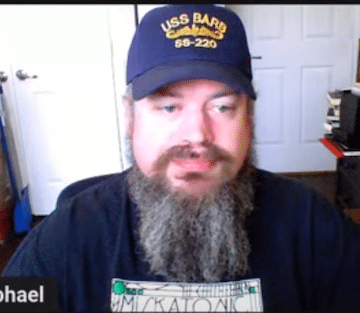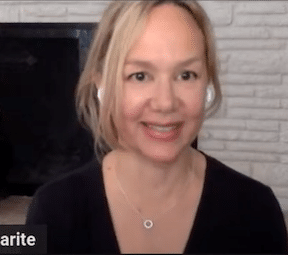
This is part three of a three-part series on Storytelling Tips. Also see:
• Part 1: Creating compelling characters for your novel
• Part 2: Mind your language: Repetition, clichés and modifiers
In his excellent book about screenwriting, Save the Cat, Blake Snyder suggests you imagine your dad or mom asking you to finish the sentence, “It’s about a guy (or girl) who…”
It’s an excellent starting point for a novelist, too, because at a stroke it performs two incredibly important functions. First, it ensures that the story revolves around a character. Second, it ensures you think about the subject of your novel.
Let’s try it with three very different books.
Moby Dick. It’s about a guy who is obsessed with killing the white whale that chewed his leg off.
Life of Pi. It’s about a guy who ponders the nature of the universe while trapped on a small boat with a tiger.
The Girl on the Train. It’s about a girl who becomes fatally involved in the lives of her ex-husband, his new wife, and their seemingly perfect neighbors.
This shorthand summary is called the book’s premise. A premise is what forms the basis of a plot.
If you write in a particular genre — legal thrillers, say, like John Grisham, or science fiction like Ann Leckie — it might seem obvious to you what your books are about.
“I write murder mysteries. My books are all about cops catching killers,” says Author A.
“I write prehistoric romance. My books are all about cave people falling in love,” says Author B.
But are they really?
Why staying focused is essential to your novel
There is something exciting about creating a world out of 26 letters and a sprinkling of punctuation marks. You are the creator of this world, its inhabitants and everything that happens in it.
You have an amateur sleuth as your protagonist? Good for you! And you decide, or she reveals to you, that she has a deep love of Renaissance art. Let’s set the action in Florence, then.
Now she can spend her downtime visiting the Uffizi and reflecting on the genius of Michelangelo, Artemisia Gentileschi, Caravaggio and the rest. Perhaps, while engrossed by Titian’s Venus of Urbino, she has an insight into the murderer’s psychology that helps her solve the case. Awe-frickin’-some!
But hold on. How much of the book is concerned with the murder, and how much follows her as she pads the corridors and galleries of the museums that fascinate her so? [Author shrugs, “how should I know?]
This is important. Particularly if you are self-published and can’t afford, or have decided to dispense with, the services of a decent editor. Because while you might be entirely sure you have written a Florentine cozy mystery — Death at the Duomo, perhaps — your readers are left wondering whether they accidentally strayed into the art history section.
This is all about focus. Or, if you prefer, self-discipline. Often, when our books, like the one losing our unfortunate reader above, stray from their intended subject, it’s because we have let our personal interests overtake our book’s subject matter. It strays too far from its premise.
There’s nothing wrong in itself in including a ton of action that revolves around Renaissance art, cookie baking, muscle cars or anything else. It’s just that you need to be clear from the outset that this is what your book is about. But, sorry to say, this is going to severely limit your readership and therefore the commercial potential of your novel.
If this is what consumes you, maybe you’d be better off writing nonfiction. There is a huge market for books on every imaginable specialist subject, from electric guitars to vintage clothing, record sleeve art to breeding tropical fish. It’s just, they’re kind of specialist interests. Niche, often.
How to make specialist subjects work in fiction
Now, you may already be thinking, well, didn’t I read online the other day about how knitting murder mysteries are a thing? You probably did. They are.
But even here, the subject of those novels is still murder. They’re not about knitting. Or women who knit. They’re about knitters who solve murders. Knitting isn’t even the secondary subject of those novels (and more of this in a minute). That could be personal rivalries over who’s going to triumph in the Regional Knit-offs.
But if knitting isn’t the subject, primary or secondary, then what the heck is it? Well, knitting is the setting. The action of the novel — a murder — takes place against a background of knitting.
The protagonist and antagonist are both knitters. The victim is found dead among balls of wool and knitting patterns with a Clover Takumi single-point bamboo knitting needle stuck through his heart. The chief suspect is, yes, you guessed it, a knitter.
Even here, there’s a risk. That in exploring the many and various types of knitting needles, the novelist strays too far from the true and righteous path of murder mysteries into the arcane byways of knitting down the ages. The detective speaks.
“As you know, Desiree, there are three basic types of knitting needle: straight, circular and double-pointed. They can be made from all kinds of materials, from plastic to bamboo, steel to aluminium. But most experts recommend bamboo for beginners as its rough surface tends to grip the wool better and prevent stitches sliding off. But as people become more experienced and skilled, many transition to slicker materials like steel.’”
What’s that? You dozed off halfway through? But there was a clue in there. Only one of the knitters in the frame is a beginner.

Do you know your A from your B?
That’s enough about what doesn’t work. How about what does work in fiction as subject matter?
Let’s try a simple exercise. Flip that last paragraph on its head. Ask yourself, what are the subjects that command everyone’s interest and attention? What are the subjects with universal appeal?
Here’s a non-exhaustive list.
Love
Death
Sex
Religion
Family
War
Crime
Journeys
Survival
Identity
Growing up
Life’s meaning
You don’t have to pick one of these. But if you are aiming for best-sellerdom, or even just a decent living as a novelist, you’d be a fool not to at least consider them as the meat of your book.
Notice how most of the list are single words. That’s a good sign that they’re universal subjects. The more words you need to express the subject of your book, the likelier it is to have specialist appeal.
West country trade routes in Saxon England and their influence on ribbon developments is unlikely to propel your novel into the USA Today bestseller list. On the other hand, a book about love — how a Saxon silversmith falls in love with a shepherdess, for example — just might.
Often the genre we pick determines the basic subject matter of our book. What we call the A-story. Police procedurals usually focus on murder, i.e., death. Romance novels on love. YA fiction on topics like identity, growing up, first love or the meaning of life.
But here’s the thing. It’s best to make your A-story just about that subject. If you want to introduce a second subject, save it for your B-story. This isn’t quite the same as a subplot, which, in a murder mystery, might also be a murder. It’s about what happens to the main character when she isn’t pursuing the deranged serial killer or bad-boy billionaire boss.
Now is your chance to explore how family ties alter over time. Or the pressures of single parenthood. Or finding out about your roots. But try to make the transitions between these two subjects seamless.
No breaking off from the hunt for the Lakeside Strangler in order for the detective to enjoy a chapter or two of genealogical research at his local library. Instead, observe the way the hero’s pursuit of his roots informs his pursuit of the killer.
How Marlowe can help find your subject
Marlowe, the artificial intelligence from Authors A.I., analyzes your novel, looking for clues that reveal what it’s about. And here’s the beauty of artificial intelligence. Marlowe neither knows nor cares what you think your book is about. She goes off and reads it and, based on the only things that matter — the words you’ve used — she determines the subject matter.
A report on a murder mystery set in the countryside might include the top three subjects as Victims: Dead Bodies and Crime Scene; Murder: Murder and Investigation: Countryside: Rural Areas and Countryside.
Further down might come Work: Work Life Balance; Business: Business and Office Life; Body Descriptions of the Body (Intimate); and Body: Objective Body.
Bestsellers typically (and that word is crucial, since there are always outliers) focus on two primary topics and two secondary topics. Together, this quartet of subjects occupy around a third of the book.
In John Grisham’sThe Firm, lawyers and the law, perhaps unsurprisingly, dominate the story. Bringing up the rear are office life, spying, and money. Dan Brown’s The Da Vinci Code draws a bead on Catholicism, God and religion followed by terrorism and art.
How does this help you? Let’s say you’ve written, or wanted to write, a contemporary, office-set romance. You run the manuscript through Marlowe and she comes back with a report that says the number one subject of your book is work-life balance.
Maybe you need to check you’ve even included a love story. If you have, is it submerged in a welter of irrelevant detail about the star-crossed lovers’ workplaces? They may enjoy a clandestine smooch in the stationery cupboard, but all your reader is getting out of the steamy encounter is the company’s preferred brand of sticky notes and the exact quantity of roller-ball pens in a box.
‘It’s complicated’
Let’s finish where we began. With your Mom asking you, “What’s it about?” You do not want to start your answer, “It’s complicated.”
How is that going to entice her to read it? And she’s your Mom! Imagine she’s a total stranger browsing the Kindle Store. The strapline for your book starts off, “This is a complicated novel that…”
Nu-uh. You’ve going to give a clear, simple and short answer. Something like this.
“It’s about a guy who finds a dead body and gets wrongly arrested for murder.”
Excellent! Because your Mom and the anonymous Kindle Store browser both love murder mysteries. The fact that the victim and suspect belonged to the same steam-train enthusiasts’ club is fine, because you hooked them with the idea of a wrongful accusation. Your book is about justice.
Interested in checking out the free version of Marlowe? Check the Marlowe Basic page or compare the different plans.






